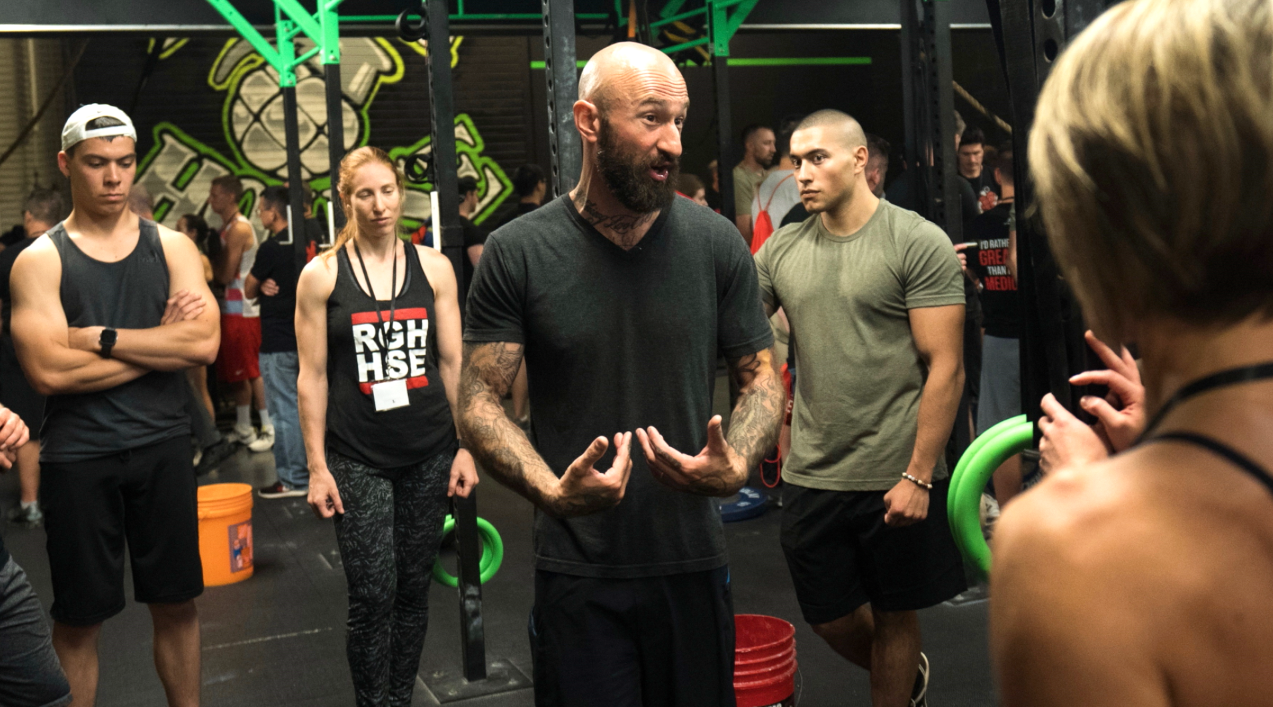 Grains are heart-healthy, grains are toxic; free weights are the best way to strength train, free weights lead to injuries; red meat is an excellent source of protein, red meat will give you cancer; cardio workouts are good for your heart, chronic cardio will leave you weak and tired; red wine is good for you, drinking alcohol destroys your liver; tuna is a great source of omega-3’s, tuna causes mercury poisoning.
Grains are heart-healthy, grains are toxic; free weights are the best way to strength train, free weights lead to injuries; red meat is an excellent source of protein, red meat will give you cancer; cardio workouts are good for your heart, chronic cardio will leave you weak and tired; red wine is good for you, drinking alcohol destroys your liver; tuna is a great source of omega-3’s, tuna causes mercury poisoning.
With so much conflicting information out there about diet and exercise, how is one to know what to believe?
Belief Systems
Whether we’re aware of it or not, we all have a belief system by which we judge new information. Our foundational beliefs shape our opinions about everything we encounter in the world.
My belief system is based primarily on three things: experience, logic, and intuition.
Experience
One of my favorite Buddhist quotes says, “Believe nothing, no matter where you read it, or who has said it, no matter if I have said it, unless it agrees with your own reason and your own experience.” I believe this to be some of the best advice ever given. There is nothing that I trust more than my own reason and firsthand experience – and there is nothing you should trust more than yours.
Logic
If something comes up that I don’t have firsthand experience with, utilizing logic becomes the best course of action. That just means I ask myself, does this make sense? If it doesn’t make sense, there may be something that I’m overlooking, or it may simply be bullshit. That’s where intuition comes in.
Intuition
Experience means relying on your five senses; in a way, intuition is our sixth sense. Trusting your intuition means believing in yourself.
If I need to make a decision about something that I have no prior experience with and I can’t come to a logical conclusion, intuition is all I have left to go on, so I’ll do what my instincts tell me. If my instincts wind up being wrong, at least I’ll have some experience to go on the next time I’m presented with similar circumstances.
Question Everything!
There are countless “experts” out there who claim that their method is the best or the only way to achieve success. The more sure someone seems of their beliefs, the more I’m inclined to question them. I always try to challenge my own closest held beliefs as well – that’s actually how I came to my decision to stop taking exercise supplements.
Whenever someone is trying to sell you something, their motivation is suspect. That’s not to say that there aren’t honest salespeople out there, but they are few and far between. Other times, we as customers are so desperate for a solution to our woes that we will abandon our common sense and buy into an idea that we know is too good to really be true. Don’t let your emotions override your sense of reason when making important decisions.
Faulty Belief Systems
Many people base their actions on shaky foundational beliefs. My hope is to steer you away from these pitfalls.
Dogma
While the term is often used in religious contexts, dogma pops up everywhere from political ideologies, to science (we’ll get to that in a minute), and even in the world of health and fitness.
Don’t assume that just because the experts agree on a given concept or practice that it must be right for you. Following dogmatic principles can often mean the opposite of trusting your own experience and that can get you into trouble. Anyone who disregards their real life experience because it conflicts with “the way things are supposed to be” is making a huge mistake.
Faith
If intuition is the belief that our instincts will lead us to make good choices, faith is the opposite of that. It’s a subtle distinction, but as instinct implies that we trust in ourselves to find the answers, faith means believing that something outside of yourself will guide you in the right direction. Some people believe in destiny; I’m more interested in manifesting my own.
Science
Science isn’t always an exact science and controlled experiments aren’t real life. When things happen in the real world, there are a lot of factors involved. The more factors involved, the more difficult it becomes to determine causality. The chasm between theory and practice makes most studies about diet, exercise or pretty much anything else irrelevant. Secondhand knowledge will always be inferior to one’s own practical experience.
Furthermore, just like you have to question a salesperson based on their motivation, you must also question science when it comes from a sponsor who’s invested in a particular outcome. Even “unbiased” or “double-blind” studies can be unknowingly influenced by those involved in the experiment, and test subjects may not be accurately reporting data in the first place.
Don’t Take My Word For It
This is not a call to action to adopt my belief system, but rather an urging to question your own beliefs (and mine). When faced with information that doesn’t mesh with your own experience, logic or intuition, proceed with caution.
